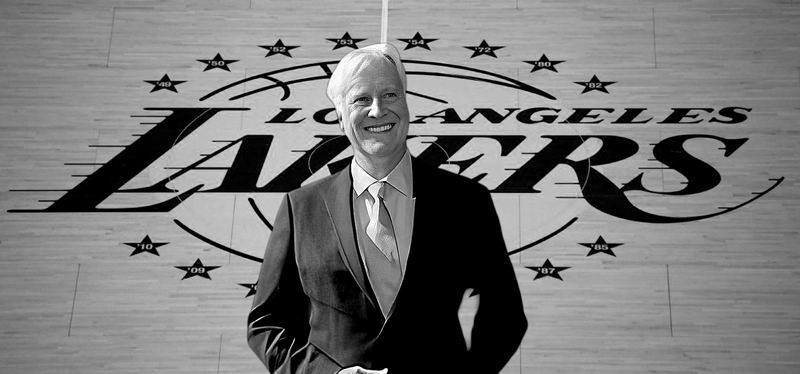Your rights when represented by a talent agency in California
If you're represented by a talent agency in California—or about to be—state law gives you powerful rights and protections. This guide breaks down contracts, commissions, safety, and how to remove yourself from bad situations.

California has clear laws to protect artists—including actors, models, musicians, and other creatives—when they're represented by talent agencies. If you're currently represented or thinking about signing with an agency, here's what you need to know.
- · What is a licensed talent agency—and why does it matter?
- · Do I need to sign a contract?
- · What fees can a talent agency charge me?
- · What are my rights if I'm a minor?
- · Can my agency discriminate against me?
- · What if I feel unsafe or exploited?
- · Do I get education about harassment or nutrition?
- · How can I resolve a dispute with my agency?
- · When can I terminate my contract or switch agencies?
- · Quick summary of your rights
Important: The legal information in this guide is sourced from the California Labor Code and "Laws Relating to Talent Agencies", a resource published by the California Department of Industrial Relations (DIR).
What is a talent agency?
A talent agency is any person or company that offers to find work or employment opportunities for artists in the entertainment industry. This includes actors, models, musicians, writers, and others. Under California Labor Code §1700.4, only licensed talent agencies are legally allowed to do this.
Agencies must be licensed by the California Labor Commissioner, and their license:
- Must be posted in a visible place at their office.
- Must be included in advertisements soliciting talent.
- Can be verified through the state.
Do I need to sign a contract?
Yes, and it must follow strict rules.
Before working with an artist, a licensed talent agency must use a contract that has been approved by the California Labor Commissioner under §1700.23. These contracts must:
- Be written and signed by both parties.
- Include the agency's commission rate and term of representation.
- State that disputes may be handled by the Labor Commissioner or, in some cases, through arbitration.
Agencies must also give you a signed copy of the contract for your records.
What fees can an agency charge me?
They can charge commissions, but not registration fees.
Under §1700.2 and §1700.40, it is illegal for an agency to charge you upfront for things like:
- Being listed in a database
- Headshots or demo reels
- Audition or coaching referrals
- Application or sign-up costs
They can only take a commission based on the work they help you get. And if you don’t get paid or the work doesn’t happen, they must refund any fees collected—plus an additional penalty if requested within 48 hours.
What happens if they collect your money from a job?
If your agency receives payment on your behalf (say, from a production company or casting agency), they are legally required to: - Place that money in a **trust account** immediately. - Pay you your share (minus any commission) **within 30 days**.
They can only hold your money longer if:
- You owe them for something documented, or
- You’re involved in a dispute over the fee, which is being reviewed by the Labor Commissioner.
If they delay payment without a valid reason, you can recover interest and attorney's fees under §1700.25(e).
Can my agency refer me to someone else—for coaching, headshots, or classes?
Only if they don’t make money from the referral.
It’s illegal for a talent agency to:
- Refer you to someone (a coach, photographer, etc.) they have a financial interest in.
- Accept any sort of kickback or referral fee from those providers.
This protects you from being steered into costly or unnecessary services.
Can I cancel my contract if they don’t find me work?
Yes, if they haven’t found you any work or offers within four months—and you were available the entire time—you can legally cancel your contract under California Code of Regulations §12001(e).
What are my rights if I’m a minor?
If you're under 18, additional protections apply when working in entertainment.
- You must have a valid entertainment work permit from the California Labor Commissioner before you can work. Agencies are required to request and keep a copy of this permit before representing or sending you on any audition, interview, or job.
- If you’re between 14–17 years old, you (and your parent or guardian) must complete sexual harassment prevention training before a permit is issued. The training:
- Is available online through the California Civil Rights Department
- Must be completed in a language you understand
- Must be certified to the Labor Commissioner by your parent or guardian
These requirements come from Labor Code §1700.52 and are enforced as a condition of lawful representation.
Can my agency discriminate against me?
No. Under Labor Code §1700.47, it is illegal for a licensed talent agency to refuse to represent you—or treat you unfairly—based on:
- Race
- Color
- Religion
- National origin
- Sex
- Disability
These rules are part of California’s broader civil rights protections.
If you believe your agency has discriminated against you in any way, you have the right to:
- File a complaint with the California Labor Commissioner, and/or
- Report the issue to the California Civil Rights Department (CRD)
The law is designed to ensure equal access to work opportunities, regardless of background or identity.
What if I feel unsafe or exploited?
Your agency cannot legally send you into any situation that endangers your health, safety, or welfare, per §1700.33. They are required to reasonably investigate the safety of any job or audition site.
In addition:
- Agencies may not send minors to places where alcohol is served for on-site consumption (like bars or clubs) under §1700.34.
- You cannot be sent to a job site where there’s an active labor dispute (e.g., a strike) unless the agency notifies you first, under §1700.38.
- They may not allow people of bad character (including intoxicated individuals or gamblers) to hang around their offices (§1700.35).
Do I get education about harassment or nutrition?
Yes, and it’s required by law.
If you're an adult artist, your agency must provide you with educational materials about:
- Sexual harassment prevention, retaliation, and reporting (within 90 days of representation or your first meeting/job)
- Nutrition and eating disorders, if you're a model
These must be in a language you understand and must follow guidelines from official agencies like the Civil Rights Department and NIH (National Institute of Health). Agencies must also keep a record for three years proving they gave you this information (see §§1700.50–1700.51).
How can I resolve a dispute with my agency?
If you have a disagreement with your talent agency—about payment, representation, contract terms, or anything else—California law gives you specific rights and procedures for resolving it.
Start by contacting the Labor Commissioner
Under Labor Code §1700.44, you have the right to file a Petition to Determine Controversy with the Labor Commissioner. This process is:
- Free
- Handled outside of regular court
- Designed specifically to protect artists in talent agency disputes
If you’re owed money, the agency must place those funds in a trust account and cannot use them while the dispute is ongoing.
What if my contract has an arbitration clause?
If your contract includes a valid arbitration provision under §1700.45, your dispute might go through arbitration instead. This is allowed only if:
- The arbitration clause gives reasonable notice to the Labor Commissioner
- The Labor Commissioner is allowed to attend the hearing
- The agreement follows all labor code requirements
If the clause doesn’t meet those standards, it cannot override your right to bring the dispute to the Labor Commissioner.
Can I appeal the decision?
Yes. After the Labor Commissioner makes a decision, either party has 10 days to appeal to the superior court, where the case will be heard from the beginning (called “de novo”).
When can I terminate my contract or switch agencies?
You’re not locked into a talent agency forever. California law gives you multiple ways to end your contract or switch agencies if things aren’t working out.
1. You can cancel after 4 months of no work
If your agency hasn’t found you any work or bona fide offers in your field for more than four consecutive months, and you were ready and willing to work that whole time, you can cancel the contract.
– This rule is found in California Code of Regulations §12001(e).
– You must give written notice to the agency.
– If you get work before giving notice, that four-month clock resets.
2. You can cancel if the agency is inactive
If your talent agency:
- Closes their office in California for over 1 month, or
- Becomes incapacitated for 3 consecutive months (due to illness, legal issues, etc.),
…you have the right to terminate your contract under §12004.
3. You can terminate for cause
Other legal grounds for ending the relationship include:
- Fraud, misrepresentation, or fee violations
- Conflicts of interest, such as referring you to someone they profit from
- Failure to follow trust fund rules
- Sending you to unsafe job sites
In these cases, the Labor Commissioner can also revoke or suspend the agency’s license under §1700.21.
4. Be aware of post-termination commissions
Even if you leave an agency, they may still be entitled to commission for work they helped you get during the contract period, including any extensions or renewals of those jobs. This is legal as long as:
- It’s written in the contract
- They continued to fulfill their responsibilities for that job
Quick Summary: Your Rights as a Represented Artist in California
- You must be represented by a licensed talent agency. Unlicensed individuals are not legally allowed to find you work.
- Talent agencies cannot charge you registration or sign-up fees. They only get paid commission from the work they help you book.
- You are entitled to a written contract approved by the Labor Commissioner. You must also receive a signed copy for your own records.
- Agencies are required to protect your health, safety, and welfare. They may not send you to unsafe locations or into exploitative situations.
- Adult artists must receive educational materials about sexual harassment prevention and, for models, nutrition and eating disorders.
- Minors must have a valid work permit and complete harassment prevention training with a parent or guardian before working.
- You can cancel your contract if your agency doesn’t find you any work for four months, or under certain legal conditions like office closure or misconduct.
- If there’s a dispute, you can bring your case to the California Labor Commissioner. You may also go to arbitration if your contract allows it under specific rules.
What’s Next? Explore Entertainment Opportunities in California
Now that you understand your rights as a represented artist, explore the world of California entertainment—from music festivals to top venues:






